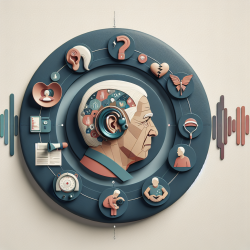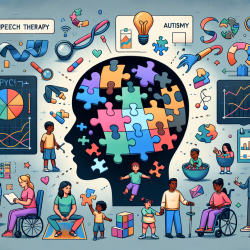As a practitioner working with athletes, understanding the multifaceted impacts of concussions is crucial. Recent research has highlighted a significant relationship between concussion history and increased alcohol consumption among university athletes. This blog post explores these findings and offers insights on how practitioners can integrate this knowledge into their practice.
The Study at a Glance
The study titled "The Relationship Between Concussion and Alcohol Consumption Among University Athletes" conducted by Alcock, Gallant, and Good (2018) delves into how concussions may influence drinking behaviors in athletes. The research involved 41 university students, 37% of whom had a history of concussion. The study employed self-report measures and electrodermal activation (EDA) recordings to assess physiological arousal levels.
Key Findings
- Increased Alcohol Consumption: Students with a history of concussion reported higher alcohol intake per outing compared to their non-concussed peers.
- Dampened Physiological Arousal: Those with a concussion history exhibited lower baseline EDA, indicating reduced physiological arousal.
- Athletic Status: Interestingly, the study found that athletic status alone did not significantly predict alcohol consumption, suggesting that concussion history plays a more pivotal role.
Implications for Practitioners
This research underscores the importance of considering concussion history when assessing risk behaviors in athletes. Here are some ways practitioners can apply these findings:
- Enhanced Screening: Incorporate questions about concussion history and alcohol use in routine assessments for athletes.
- Psychoeducation: Educate athletes about the potential impact of concussions on their decision-making processes and risk behaviors.
- Counseling Interventions: Develop targeted interventions that address both the psychological and physiological consequences of concussions.
- Collaborative Care: Work closely with other healthcare providers to create comprehensive care plans that include monitoring for substance use post-concussion.
The Need for Further Research
The study opens up several avenues for further research. Understanding the mechanisms behind the relationship between concussions and alcohol consumption can lead to more effective interventions. Future studies could explore larger sample sizes or longitudinal designs to better understand causal relationships.
This research also suggests that addressing physiological underarousal could be key to reducing risky behaviors post-concussion. Investigating interventions that focus on enhancing physiological arousal might offer new strategies for managing post-concussion symptoms.
If you're interested in exploring this topic further, consider reading the original research paper: The relationship between concussion and alcohol consumption among university athletes.










